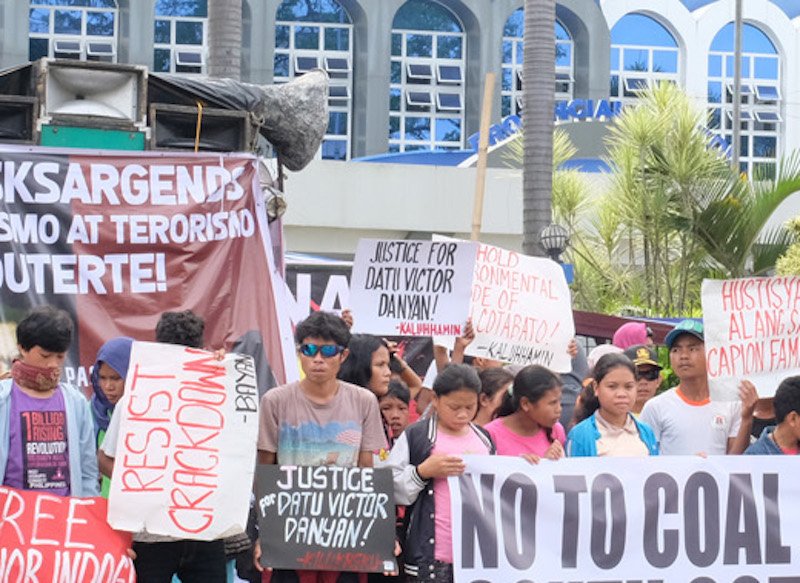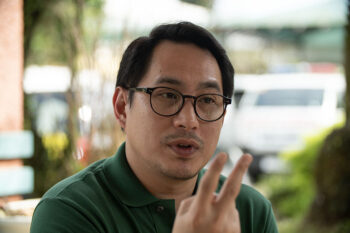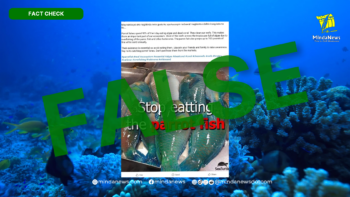(This article is co-authored with E.M. Taqueban, a colleague at the Department of Anthropology in the University of the Philippines in Diliman and the Adviser for the Research and Policy Development of the Legal Rights and Natural Resources Center, a non-governmental organization that works with indigenous peoples and poor upland rural communities. We chose to publish it this week when we commemorate International Human Rights Day)
QUEZON CITY (MindaNews / 10 December) — Many of us start the day with coffee. For many Filipinos, coffee-drinking has even become a fashionable luxury expense. Domestic demand for coffee is increasing. A new report from the Legal Rights and Natural Resources Center, “Brewing Tension: A Case Study of a Coffee Plantation in Indigenous Land,” found that the Philippines is poised to become one of the world’s five largest consumers by 2021. Coffee is being pushed by the agro-industry as the Philippines’ next big thing.
The global coffee boom is, however, not without its tensions and casualties. On paper, industry-driven development projects look good and benign. And yet, a warm cup of coffee belies struggles and tensions on the ground.

Last December 3 marked the second year since the death of eight T’boli-Manobo indigenous people in South Cotabato. Datu Victor Danyan, his sons Victor Jr. and Artemio, and five men of the tribe were gunned down in a military encounter. Alleged to be insurgents, they were in fact only standing their ground to protect their ancestral domain against a giant corporation’s land grab.
Profit versus lives
In the village of Ned, in Lake Sebu, South Cotabato, is the thriving large-scale Dawang Coffee Plantation, run by Silvicultural Industries, Inc. (SII). House Resolution No. 1550 filed in the House of Representatives in December 2017 states that the plantation supplies its coffee beans to a global food and beverage company. Dawang is one of many local plantations that sate the demand for coffee.
But the plantation has also encroached on the ancestral domain of a group of indigenous people, the T’boli-Manobo S’daf Claimants Organization (TAMASCO). The plantation had a 25-year permit to operate in the ancestral domain of TAMASCO, expiring in 2016.
The Department of Environment and Natural Resources (DENR) renewed the permit a year early, in 2015, but without securing the permission of TAMASCO. DENR failed to secure the Free, Prior, and Informed Consent (FPIC) of TAMASCO, which is required by law under the Indigenous Peoples Rights Act (IPRA).
The renewal was secured by cleverly combining the old permit with another permit for SII’s sister company, M&S Company, which had a longer expiration. This permit not only covers TAMASCO’s land but the ancestral domains of Manobo-Dulangan and Teduray indigenous people in the provinces of Sultan Kudarat and Maguindanao.
The renewal let TAMASCO down, and drove its leader Datu Victor to anger. Believing, and rightly so, the renewal was invalid because without TAMASCO’s consent, Datu Victor cut coffee trees in the portion of the plantation that belonged to TAMASCO, preparing it for farming. He then marched down to the barracks of company guards and asked them to leave.
Shortly after, Datu Victor and seven other members of TAMASCO were killed in what the military has since described as an encounter between the military and rebels. A report from Global Witness found, however, that the massacre was directly linked to the struggle of TAMASCO over land.
Coffee Boom, Community Bane
The Philippine Department of Trade and Industry (DTI) has created a roadmap for the coffee industry (Coffee Industry Roadmap 2017-2022), touting it to be the Philippines’ next booming sector. It projects coffee plantations expanding from 140,552 hectares to 213,788 hectares by 2022. The target areas for coffee production will be in the island of Mindanao, particularly in the regions of Soccsksargen and Davao.
Commercial scale plantations are identified as key stakeholders in the Philippine Coffee Industry Road Map, which counts SII and M&S Company. Integrated Forest Management Agreements (IFMAs) entered by the Philippine government with businesses enable the latter to convert forestland, mainly covering indigenous peoples’ ancestral domains, to commercial tree plantations.
The bid to convert land into agri-business for profit has resulted in the undermining of ancestral domains and the threatening of ecosystems. Agribusiness corporations jeopardize indigenous people’s right to land, curtailing their practice of indigenous cultivation and thus affecting their way of life. Large plantations tend to deplete soil nutrition, change the landscape and increase hazards. Moreover, the operations of large-scale agricultural plantations often result in the internal displacement and dispossession of communities. The involuntary disappearance of environmental human rights defenders opposing large agribusiness companies has also been reported. The experience of TAMASCO is a testament to this.
Investors and corporations have historically been the cause of injustices against indigenous peoples. Isolated and ignored, indigenous peoples and their land become prey for the hawkish schemes of big business. The country’s development program, which is heavily dependent on massive agro-industrial extractive projects, is also predicated on indigenous lands.
Citing a study by Huesca, the paper by LRC found that these investments, however, have failed to curb the gnawing poverty in affected communities and instead have made worse the insecure conditions of vulnerable communities.
Environmental Justice
But many indigenous peoples continue to resist. They recognize these development projects as threats to their natural environment and way of life — to their traditional economy, cultural values and traditional structures. Large-scale plantations undermine communities’ food sovereignty, usurping their right to healthy and culturally appropriate food, and their right to their own agricultural systems.
Ancestral domains are the last bastions of natural resources that can help stave off the effects of climate change.
The government and its representative institutions have yet to make definitive steps to rightfully reinstate TAMASCO safely in their ancestral domain. The deaths of Datu Victor and others have also not been vindicated. It has been a modus operandi to criminalize the assertions of indigenous peoples even as law formally recognizes their rights. Their assertions are regarded as insurgency, masking blatant violence as defense of the State. This criminalization is but a ploy to deny them their rights to their land and resources. What continues to oppress TAMASCO is symptomatic of the increasing commercialization of ancestral domains. Instead of recognition and an equitable consideration for indigenous peoples, there is a bias for large development projects with private interests.
Justice remains elusive for the T’boli-Manobo people, as it is for other indigenous peoples. Even as indigenous peoples’ resistance has resulted in deaths, it is business as usual for M&S, cultivating, trading and serving bloodied coffee to the world.
Now the leader of the beleaguered TAMASCO, Datu Dante Dinyan has said, “We will stand by the land as our elders have. How many more of us need to die [before justice can be served?].”
Corporations have to be accountable for their impacts on communities. Government is duty-bound to ensure that communities and their way of life are protected.
Ancestral domains are the last bastions that preserve and protect the country’s natural reserves. Many have died to protect these. The price of our morning coffee must not be paid in blood.
(MindaViews is the opinion section of MindaNews. Antonio “Tony” La Viña of Cagayan de Oro City is former Dean of the Ateneo School of Government. He teaches Constitutional law in several schools in Manila and Mindanao)







